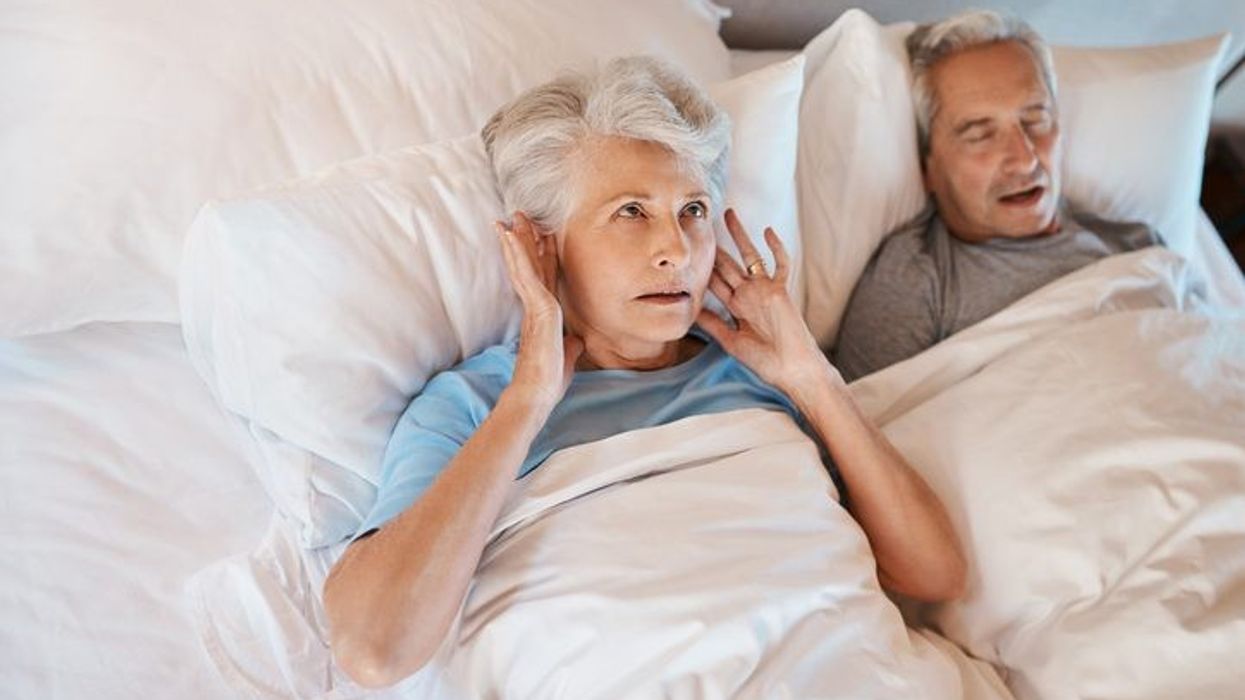New research suggests that individuals with sleep apnoea and reduced deep sleep may be at higher risk for developing brain biomarkers associated with stroke, Alzheimer's disease, and cognitive decline.
Although the study only establishes an association and not a causal relationship, it sheds light on the potential impact of sleep disturbances on brain health.
The findings have been published in the journal Neurology and focused on sleep factors and biomarkers related to the brain's white matter, crucial for interconnecting different brain regions.
White matter hyperintensities and axonal integrity serve as crucial biomarkers for evaluating brain health.
The presence of white matter lesions can indicate age-related changes or uncontrolled high blood pressure, while assessing the integrity of axons helps understand the connectivity and functioning of nerve cells.
"These biomarkers are sensitive signs of early cerebrovascular disease," said study author Diego Z.
According to Carvalho, of the Mayo Clinic in Rochester, Minnesota, who is also a member of the American Academy of Neurology, "Finding that severe sleep apnoea and a reduction in slow-wave sleep are associated with these biomarkers is important since there is no treatment for these changes in the brain, so we need to find ways to prevent them from happening or getting worse.”
During their research, the scientists investigated a group of 140 individuals, averaging 73 years old, who suffered from obstructive sleep apnea.
The scientists reported that each participant underwent both a brain scan and an overnight study conducted in a sleep laboratory. The participants did not display any cognitive impairments at the beginning of the study and did not develop dementia by the study's conclusion.
It was observed that among the participants, 34 per cent exhibited mild sleep apnoea, 32 per cent had moderate sleep apnoea, and the remaining 34 per cent had severe sleep apnoea.
Additionally, during the sleep study, the researchers focused on analysing the duration of slow-wave sleep, also known as non-REM stage 3 or deep sleep. This stage is considered one of the most reliable indicators of sleep quality.
The study revealed a noteworthy correlation: with every 10-point reduction in the percentage of slow-wave sleep, there was an observed increase in the occurrence of white matter hyperintensities. This effect was similar to aging by approximately 2.3 years.
Also, the same decrease in slow-wave sleep was linked to diminished axonal integrity, equivalent to aging by approximately three years.
Furthermore, individuals diagnosed with severe sleep apnoea exhibited a greater volume of white matter hyperintensities compared to those with mild or moderate sleep apnea. The researchers also observed a decrease in axonal integrity within the participants' brains.
"More research is needed to determine whether sleep issues affect these brain biomarkers or vice versa," Carvalho said. "We also need to look at whether strategies to improve sleep quality or treatment of sleep apnoea can affect the trajectory of these biomarkers."
(PTI)




